Exhibition mame: Pakistan Auto, Motorcycle and Accessories Exhibition (PAPS 2025)
Exhibition time: November 14-16, 2025
Exhibition location: Karachi, Pakistan
Duration: Once a year (held annually in Karazi and biennially in Lahore)
Host: Pakistan Association of Automotive Parts Manufacturers (PAAPAM)
13611033587
Pakistan has a population of about 250 million (2024 data), which is the sixth most populous country in the world, with rapid population growth. The vehicle parts sales market is one of the most dynamic markets in the world, and PAPS is a huge platform for Pakistan to exchange knowledge, technology, and trade in the fields of vehicle and accessory decoration and services.
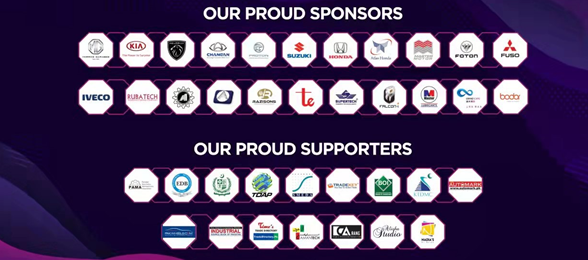
Reasons for participating in this exhibition:
PAPS is the largest automotive, motorcycle, truck, and agricultural vehicle and parts exhibition in Pakistan
This exhibition is held annually and is the most influential professional vehicle and parts exhibition in Pakistan. Chinese companies and products have opened up the Pakistani market, and there is a great market for Chinese automotive parts in Pakistan. I hope everyone does not miss this opportunity!
Our company's contact information:
Grand Lnternational Exhibition Co,.Ltd.
Address: Room 201, Block G, Huiyuan Building, No. 8 Beichen East Road, Chaoyang District, Beijing, Postal Code: 100101
★ Welcome to follow us. For more exhibition information, exhibition knowledge and experience sharing, please pay attention to our public WeChat account: search for "World Exhibition Platform" and "Overseas"
Exhibition Review:
The 2017 exhibition was held at the Karachi International Exhibition Center in Pakistan. 68 auto parts companies from 12 provinces and cities, including Guangdong, Jiangsu, Fujian, Anhui, Zhejiang, Heilongjiang, Shandong, Hebei, Hubei, Chongqing, Liaoning, and Xinjiang, participated in the exhibition. The range of exhibits includes complete vehicles, spare parts, equipment and technology, new energy vehicles, automotive decoration parts, motorcycles and accessories, and automotive repair and maintenance equipment.
The Chinese products and technologies exhibited at the exhibition attracted many Pakistani merchants and companies to visit, and many companies signed cooperation agreements on the spot. During the exhibition, multiple local television stations and newspapers came to interview multiple times. Among them, Ghulam Murtaza Khan Jatoi, Minister of Industry and Production of Pakistan, several government officials from the Ministry of Investment Promotion of Pakistan, and the Pakistan Automotive Parts Dealers Association led entrepreneurs to visit the China exhibition area and gain a detailed understanding of the characteristics and uses of the products. Zubair Tufail, President of the Federal Pakistan Chamber of Commerce&Industries, visited the booth of Chinese companies before attending the closing ceremony, expressing gratitude for their participation and hoping that more Chinese companies would participate and take advantage of the preferential policies provided by the Pakistani government to invest and set up factories in Pakistan.
The 2018 exhibition was held in Lahore, with 81 auto parts companies from 13 provinces and cities including Guangdong, Jiangsu, Fujian, Anhui, Zhejiang, Shandong, Hebei, Sichuan, Chongqing, Shanghai, Liaoning, and Henan participating. The exhibits covered motorcycles, trucks, auto parts, equipment and technology, new energy vehicles, automotive decoration and maintenance materials, motorcycles and accessories, and automotive repair and maintenance equipment. Industry renowned enterprises such as Chongqing Zongshen Group, Zhongyuan Piston Co., Ltd. and Qingte Group, Fujian Dongya Machinery, and Yongli Tai Axle participated in the exhibition.
The 2019 exhibition was held in Karachi, with 93 auto parts companies from 16 provinces and cities including Guangdong, Jiangsu, Fujian, Anhui, Zhejiang, Shandong, Hebei, Henan, Hubei, Hunan, Chongqing, Liaoning, Beijing, Gansu, Shanghai, and Shenzhen exhibiting at a total of 94 booths, including well-known companies in the industry such as Chongqing Zongshen Group.
The exhibition will be held in Lahore in July 2022, and Chinese companies will participate in the exhibition through diversified methods, making the event unprecedentedly grand.
In 2023, the exhibition will be held in Karachi, with about 70 Chinese enterprises and brands participating. Türkiye is the second largest international exhibition group. Including Zongshen Motorcycle, Chongqing Tricycles, Electric Bicycles, Jinan Bodor, SENfeng Machine Tool Brands, and numerous exhibitors of automotive and motorcycle accessories and supplies.
It is worth noting that Pakistan's customs are very strict and interconnected with China, cracking down on low invoicing and low customs declaration behaviors, paying attention to compliance, and avoiding fines. If the sample is sent by air freight, it is recommended to consult regular international express delivery such as DHL and EMS.
2018 Photo Collection: Lahore Exhibition Center
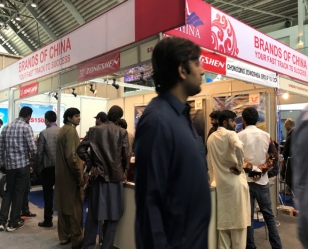
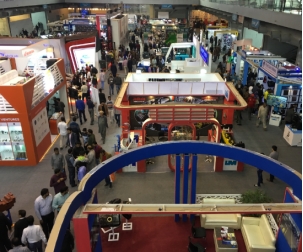
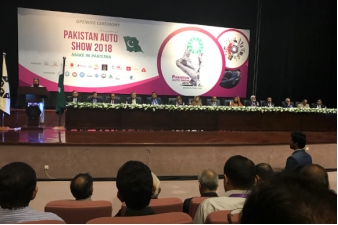
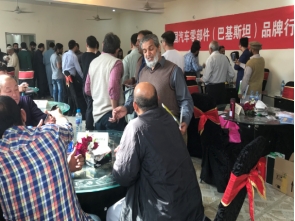
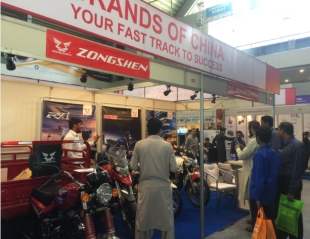
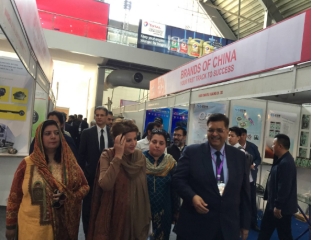
2019 Exhibition Photo Collection: Karachi Exhibition Center
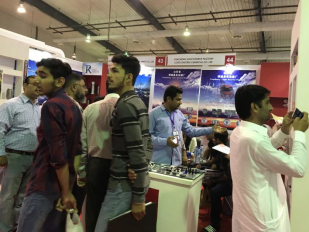
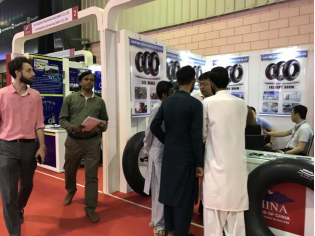
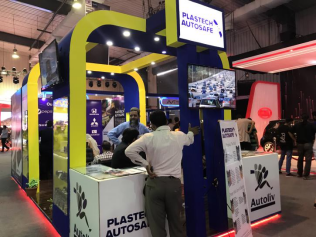
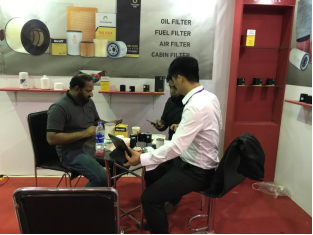
2023 Exhibition Photo Collection: Karachi Exhibition Center
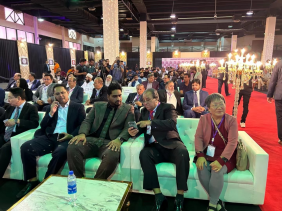
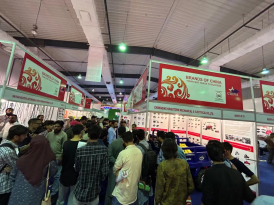
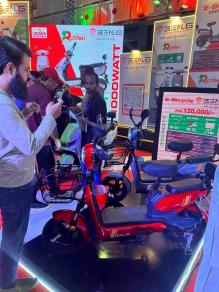
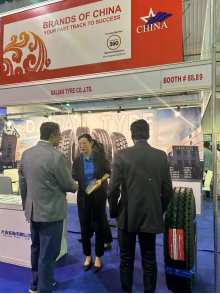
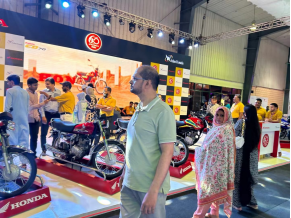
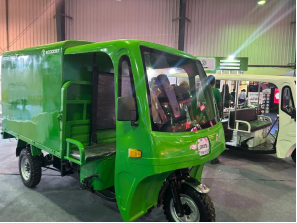
Background and current situation of Pakistan's automobile and motorcycle market:
Pakistan is a country rich in resources and in urgent need of development. In recent years, the Pakistani government has adopted a relaxed investment policy to attract foreign investment to the greatest extent possible. In some economic sectors, foreign investors can hold up to 100% equity. Therefore, in the past few years, the country's foreign direct investment has significantly increased, making Pakistan stand out in the Middle East region. In addition, several important indicators show that Pakistan's economy has achieved significant development, with a significant increase in both gross domestic product and gross domestic product, an increase in foreign exchange reserves, a soaring stock market, currency stability, and an improvement in international balance of payments. Pakistan has skilled and low-cost labor, as well as multiple export preferential policies, which are very beneficial to foreign investors. On November 24, 2006, the Chinese and Pakistani governments signed a bilateral Free Trade Agreement, which further paved the way for Chinese enterprises to explore the Pakistani market. The upgraded version of the Free Trade Agreement signed between China and Pakistan in 2019 increased the proportion of tariff items for zero tariff products from 35% to 75%. Pakistan has included China's key export advantage products such as electromechanical, glass products, automotive and motorcycle parts in tariff reductions. http://fta.mofcom.gov.cn/pakistan_phase2/pakistan_phase2_special.shtml
The Pakistani automotive industry started relatively late, starting in the 1950s with the assembly of "BED FORD" trucks at the Karachi National Automobile Company. The production of cars mainly consisted of assembling American cars, with the vast majority of parts coming from abroad and a low degree of localization. After the 1980s, Japanese car companies such as Hino and Toyota successively established assembly plants in Pakistan and began to introduce and assemble Japanese small displacement brand sedans (800cc~1600cc). Japanese brand cars with high cost-effectiveness quickly dominated the Pakistani car market. The Pakistani government began implementing a mandatory localization plan for the automotive industry in 1985, and the Pakistani automotive industry began to have initial production capacity for components. After the 1990s, Pakistan's automobile production entered a period of rapid growth, but it still mainly focused on assembling and selling Japanese brand cars. Although Korean brands such as Hyundai and Kia have also begun to enter the local automotive market, their market share is very limited. The Pakistani government is working to change the situation where Japanese brands dominate.
According to the Pakistan Automotive Industry Plan, the period from 2005 to 2012 is the development stage of Pakistan's automotive industry, which is the stage of further improving the level of the automotive industry under new industrial policies and competitive environment. As a result, the Pakistani government cancelled the localization plan that had been implemented for many years since July 2006, and adopted a "tax base system" that adapts to trade-related investment measures, using vehicle import (CBU) and key component import tariff adjustments to promote vehicle assembly and component localization. In addition, BAIC Motor Industry has established a mature dealer system with over 500 dealers.
Major automobile companies and component systems in Pakistan
At present, there are 32 automobile companies in Pakistan, mainly engaged in assembling sedans, light vehicles, medium and heavy trucks, and buses. Among them, PAK SUZUKI, INDUS, HONDA ATLAS and DEWAN FAROOQUE are the leading manufacturers in the Pakistan car market, mainly assembling Suzuki, Toyota, Honda, Dafa and other brand cars, accounting for more than 95% of the market sales. At present, all four companies have been listed on the Pakistan Stock Exchange. The only domestically produced independent brand car in Pakistan is the Revo sedan from Adam Motors. In addition, companies that assemble trucks in Pakistan include Hino, Nissan, Isuzu, Daewoo, and Camas. There are about 200 automotive parts suppliers in Pakistan, most of which are small and medium-sized enterprises established during the localization stage of the Pakistani automotive industry. These suppliers do not have research and development capabilities and mainly supply automotive stamping parts, wiring harnesses, interior parts, seats, rubber parts, plastic parts, batteries, tires, wheel rims, and car lights.
Outlook for Brazilian Automobile Consumption
The potential of the automobile consumer market in Pakistan is enormous. Pakistan is the sixth most populous country in the world, with a total population of nearly 220 million in 2020, of which 60% are young people under the age of 35. Pakistan is one of the top 40 countries in the world's automotive industry. Due to the severe lack of public transportation system in Pakistan, purchasing vehicles has increasingly become a necessary living expense. Ba residents often reduce their traditional three essential expenses of food, clothing, and housing to buy cars, at least motorcycles. Lahore is a heavy industrial base in northern Pakistan. In Karachi, the largest commercial city in Pakistan, there are 540 cars on the road every day, but the per capita car stock in Pakistan is still at a relatively low level compared to developing countries. The Pakistani automotive industry includes light passenger vehicles, light commercial vehicles, motorcycles, trucks, buses, and tractors. The localization level of Pakistan's automobile manufacturing industry is very high, for example, the localization production of tractors ranges from 75% to 96%.
However, many component manufacturing technologies, such as engine parts and transmission components, are still blank in Pakistan, so they rely entirely on imports. The Pakistani automotive industry experienced double-digit growth in both 2017 and 2018, but experienced a decline in the fourth quarter of 2019 due to economic factors. However, in the long run, the demand in the automotive industry is very high, and this demand is a huge opportunity for Chinese exhibitors. With the support of the World Monetary Fund and a $56 billion investment in the China Pakistan Economic Corridor, Pakistan's economy is expected to develop rapidly in 2021. Many foreign car manufacturers are optimistic about Pakistan, such as Kia and Hyundai from South Korea. If we look at Pakistan's per capita GDP, the automotive industry has great potential, currently accounting for only 0.1%. The development history of the automotive industry in recent years also shows that during periods of economic prosperity, lower interest rates and loose car credit can greatly promote car sales, making the automotive industry in Pakistan full of vitality. With the recovery of the Pakistani economy, the expansion and strengthening of the middle class in Pakistan will drive the vigorous development of the automotive industry.
Current situation of Chinese companies in the Pakistani automotive market
At present, Chinese cars have begun to sporadically appear in the Pakistani car market monopolized by Japanese cars, with an overall market share of less than 1%. Chinese companies that have entered the Pakistani automobile market include FAW, Dongfeng, Chery, Changhe, Geely, Jinan Qingqi, Changan, Beiqi Foton, Great Wall, etc. Among them, FAW medium-sized vehicles and dump trucks, Changhe automobiles, and Qingqi motorcycles have all performed well. China National Heavy Duty Truck Group set up a production line in Pakistan and officially began operation at the end of 2019. The Great Wall Haval H6 officially entered the market in April 2021, and in October, it was announced that the third-generation Haval H6 and Haval First Love from Great Wall Motors would be launched in Pakistan. The target customer group of Chinese automobile companies is mainly the affluent middle class, while small displacement low-end products are the main products.
Current situation of the motorcycle market in Pakistan
Pakistan has the fifth largest motorcycle ownership in the world, ranking behind China, India, Indonesia, and Thailand, with an estimated 40 million units. There are 34 assembly factories for motorcycles, with 80% of them being Honda models (including Honda imitations such as Lifan, Qingqi, and Suzuki), followed by Yamaha and Suzuki. There are 1-2 million tricycles in Pakistan, with three or four assembly plants. The first to enter Pakistan was the Italian brand VESPA tricycles, which have been discontinued. Nowadays, self owned brands NewAsia and Rozgar's three wheeled passenger vehicles, due to their low prices and poor road conditions, mainly serve as taxis. Qingqi and Zongshen assemble 150cc and 200cc motorcycle three wheeled cargo vehicles in Pakistan, all of which use Chinese made parts.
Qingqi took the lead around 1997, while Zongshen entered Pakistan in the past two years with a high demand for related accessories and great potential in the market. Qingqi Motorcycle and Zongshen Motorcycle have both achieved good development in Pakistan, and Chinese companies are very welcome to invest and set up factories in Pakistan. By utilizing Pakistan's relatively low labor costs for production, the products can not only face the large market of 200 million people in Pakistan, but also radiate to neighboring South Asian and Middle Eastern countries such as the United Arab Emirates.
Introduction of the organizer:
The Pakistan Association of Automotive Parts Manufacturers (PAAPAM) was established in 1988 and officially recognized by Pakistan in 1992. The association represents over 2800 automotive parts manufacturing companies located throughout Pakistan. The registered members of this association have exceeded 350. The work of the association includes protecting the interests of automotive component manufacturers, formulating national automotive policies and providing membership services, researching and developing specific automotive data, organizing and managing annual exhibitions in Pakistan, and collaborating with international partners.